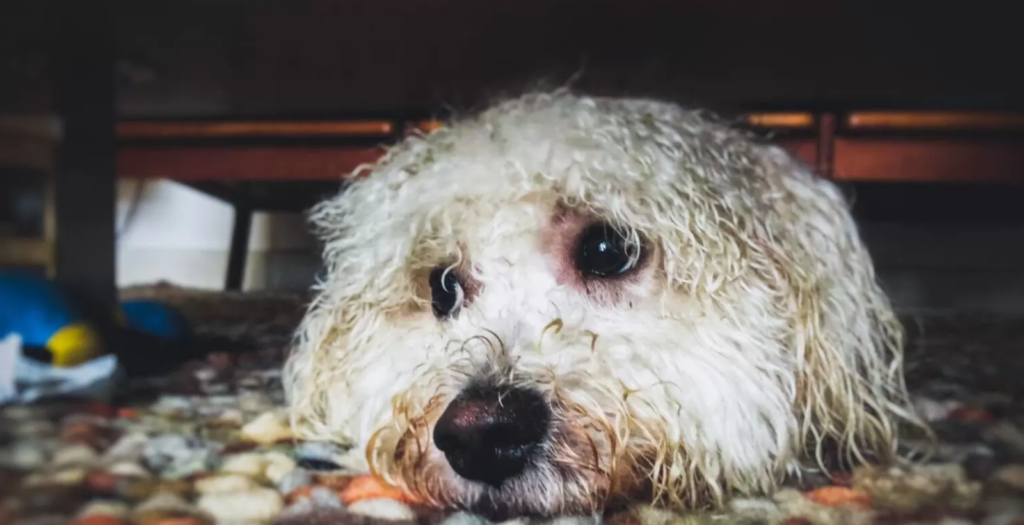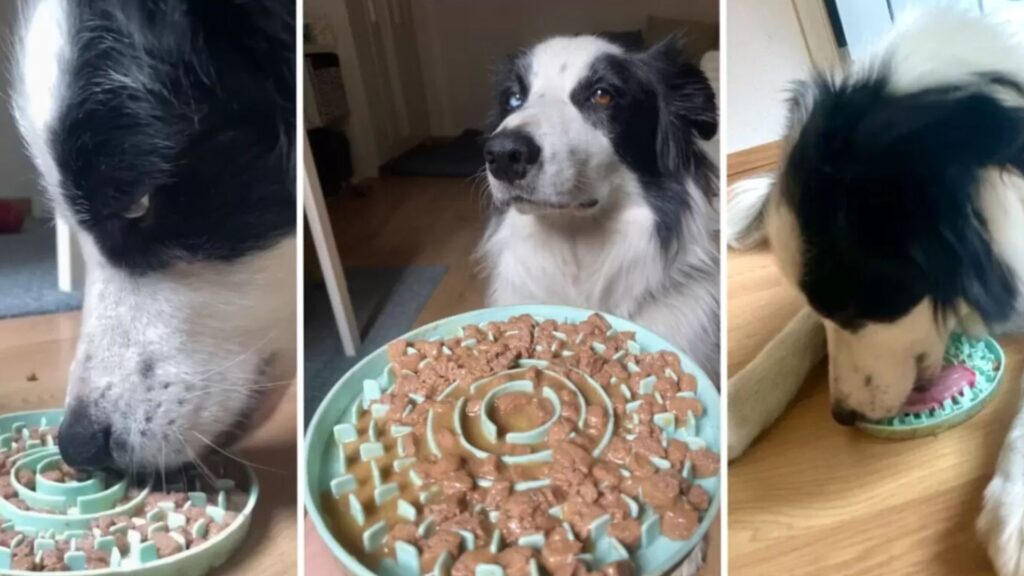Managing noise phobia in dogs: watch out for these on 20 August!
Noise phobia is one of the most common behavioural problems, affecting one third of dogs.
There is an interesting correlation between separation anxiety and noise phobia, as dogs who experience separation anxiety are more likely to be noise phobic.
A noise-phobic dog is afraid of loud noises, most commonly thunderstorms and fireworks, but can also be frightened of things like vacuum cleaners, traffic noise, sirens, drills, and the list goes on.
Loud noises can be very frightening and can cause distress (harmful stress), causing the dog to experience a panic attack.
Of course, there are degrees of this, from very mild fear to a level of terror where the dog is capable of harming itself or its environment.
If the dog is nervous, frightened or mildly afraid of loud noises, this is perfectly normal, but noise phobia with anxiety and destructive behaviour requires treatment and attention, training and, in severe cases, medication.
It’s definitely worth addressing noise phobia as, if we don’t try to help our dog, his symptoms may increase over time, the chances of escape and injury increase and, all in all, his quality of life can deteriorate significantly.
Imagine what it must be like to spend your daily life in unpredictable fear, dreading storms and fireworks.

During noise phobia here's what we find:
- restlessness, constant pacing
- shaking, trembling
- licking the nose
- increase in heart rate
- increased respiratory rate, wheezing, panting
- Hiding
- tenses, curls up, eyebrows furrowed, ears flattened to six, tail tucked under
- vocalization: barking, howling, whining
It is worth monitoring noise-phobia signals and intervening if necessary.
Here are some things, what you can do to help your dog in case of noise phobia:
- It is important to design your environment so that you have a safe hiding place.
- If it is an outdoor dog, it is recommended to let it into the garage, boiler room or apartment.
- Give him simpler tasks and reward and praise him handsomely.
- Play with it, or even use a food ball, a licky mat; the point is to distract it.
Delicious snacks will be hard to resist. - Let’s darken the house, close the blinds.
- Turning on music or TV can also help.
- If possible, don’t take him for a walk at this time, but time it so that he can do his work before the noise.
- Training is also very effective for noise phobia, but if you can, ask a trainer for help.
- In more severe cases, medication may also be necessary for noise phobia: there are herbal remedies, antidepressants, mild and even more severe tranquillisers. Be sure to consult your vet before starting any medication if your dog is noise phobic!

What you should never do NEVER, EVER PUNISH YOUR DOG FOR BEING AFRAID!!!!
You’ll only make things worse, and you may even ruin the relationship between you and the dog, making him more stressed and fearful.
Try to be understanding and find a solution to the situation, it is best if you don’t reinforce his fear, but act naturally, as if there is nothing to fear from fireworks and as if it is the most natural thing in the world for the sky to be thundering.
It’s also worth thinking ahead for the upcoming fireworks display on 20 August, because if your dog is also affected by noise phobia and you’re going away, it’s worth considering hiring a qualified sitter to look after your dog in your own home, so you don’t have to take him to a strange place and make an already fearful event more stressful for him.


